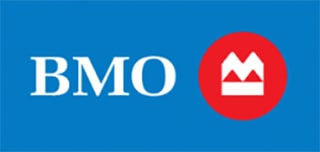
Mortgage Payment Calculator
Find out how much your weekly, bi-weekly, or monthly mortgage payments would cost with our mortgage payment calculator.

If you are not redirected within 30 seconds, please click here to continue.

If you are not redirected within 30 seconds, please click here to continue.
If you are not redirected within 30 seconds, please click here to continue.
Rates are based on an average mortgage of $500,000 and subject to change based on filter criteria.
| Lender
|
Insured
|
Insurable
|
Uninsured
|
|---|---|---|---|
|
Compass Mortgage Group oa My Mortgage Power
|
3.89%
$2,600.37 / month
|
3.99%
$2,627.39 / month
|
3.89%
$2,600.37 / month
|
|
MMG Mortgages
|
3.94%
$2,613.86 / month
|
4.14%
$2,668.19 / month
|
3.99%
$2,627.39 / month
|
|
Northwood Mortgage Ltd.
|
4.19%
$2,681.85 / month
|
4.49%
$2,764.59 / month
|
4.19%
$2,681.85 / month
|
|
BMO
|
4.25%
$2,698.30 / month
|
4.47%
$2,759.03 / month
|
4.47%
$2,759.03 / month
|
|
Innovation Federal Credit Union
|
4.32%
$2,717.55 / month
|
4.32%
$2,717.55 / month
|
4.32%
$2,717.55 / month
|
|
Rocket Mortgage
|
4.39%
$2,736.87 / month
|
4.54%
$2,778.49 / month
|
4.39%
$2,736.87 / month
|
|
Gibson Mortgages
|
4.99%
$2,905.18 / month
|
4.44%
$2,750.71 / month
|
4.29%
$2,709.29 / month
|
|
Nuborrow
|
5.49%
$3,049.05 / month
|
5.49%
$3,049.05 / month
|
5.49%
$3,049.05 / month
|
|
True North Mortgage
|
2.99%
$2,363.66 / month
|
2.99%
$2,363.66 / month
|
2.99%
$2,363.66 / month
|
|
Nesto
|
3.64%
$2,533.44 / month
|
3.64%
$2,533.44 / month
|
3.64%
$2,533.44 / month
|
|
Hypotheca
|
3.74%
$2,560.11 / month
|
3.74%
$2,560.11 / month
|
3.74%
$2,560.11 / month
|
|
DUCA Financial
|
3.79%
$2,573.49 / month
|
3.79%
$2,573.49 / month
|
3.79%
$2,573.49 / month
|
|
Monster Mortgage
|
3.79%
$2,573.49 / month
|
3.79%
$2,573.49 / month
|
3.79%
$2,573.49 / month
|
|
The Mortgage Advisors
|
3.87%
$2,594.98 / month
|
3.87%
$2,594.98 / month
|
3.87%
$2,594.98 / month
|
Rates are based on an average mortgage of $500,000
| Insured | 80% LTV | 65% LTV | Uninsured | Bank Rate | |
|---|---|---|---|---|---|
| 1-year fixed rate | 4.69% | 4.19% | 4.19% | 5.49% |
5.49%
|
| 2-year fixed rate | 4.09% | 3.99% | 3.99% | 4.70% |
4.79%
|
| 3-year fixed rate | 3.79% | 3.79% | 3.79% | 4.24% |
4.39%
|
| 4-year fixed rate | 4.04% | 3.99% | 3.99% | 4.44% |
4.29%
|
| 5-year fixed rate | 3.64% | 3.89% | 3.64% | 3.64% |
3.99%
|
| 7-year fixed rate | 4.39% | 4.19% | 4.19% | 5.15% |
5.00%
|
| 10-year fixed rate | 5.04% | 4.44% | 4.44% | 5.25% |
6.79%
|
| 3-year variable rate | 4.15% | 4.30% | 4.30% | 4.45% |
6.35%
|
| 5-year variable rate | 3.95% | 3.95% | 3.95% | 4.00% |
4.25%
|
| HELOC rate | N/A | N/A | N/A | N/A | N/A |
| Stress test | 5.25% | 5.25% | 5.25% | 5.25% | N/A |
Rates are based on a home value of $500,000



Rates are based on a home value of $500,000



Rates are based on a home value of $500,000


The interest rate on a fixed-rate mortgage remains the same throughout the term of the mortgage. It does not increase or decrease with the change in overnight prime rate by the Bank of Canada. A 5-year fixed-rate mortgage stays the same for the five-year period of the mortgage term. The interest rate and mortgage payments do not fluctuate until it's time for renewal or the borrower decides to refinance.
The term of the mortgage is five years. This refers to the length of time the provisions of your mortgage are in effect. If the borrower decides to get out of the mortgage before the end of five years, they will have to pay a penalty or prepayment charge to the lender.
In the last two years, from 2022-2023, high inflation has led to rapidly increasing interest rates which has caused the cooling of housing markets across Canada and decelerated mortgage growth.
Mortgage borrowers are opting for shorter-term fixed-rate mortgages, with fixed-rate 5-year mortgages falling to less than 15% of new mortgages, and variable-rate mortgages dropping to less than 20% of new mortgages, according to the CMHC Residential Mortgage Industry Report.
Since Q3 2022, the fixed-term lending rate has been lower than the variable rate. Moreover, since June 2022, federally regulated financial institutions have lent more funds for new and renewed mortgages under fixed-rate agreements than variable-rate agreements. In fact, this
is a return to pre-pandemic norms. However, fixed-rate mortgages of 5 years or more are no longer the most-popular option.
The 5-year fixed-rate mortgage is a popular choice among homebuyers. About 66% of mortgage holders have fixed-rate mortgages, according to Mortgage Professionals Canada's semi-annual report on the housing market released in March 2022.
The 5-year fixed-rate mortgage is a popular loan term because it strikes the right balance between a competitive mortgage rate and a term length that gives borrowers confidence. Many borrowers in Canada want to avoid the hassle of renewing their mortgage while insulating themselves from short-term instability in the market (increasing interest rates by the Bank of Canada, for one).
Many risk-average borrowers lose sleep over the constantly changing market scenario and increasing interest rates, and locking a rate for a period of five years gives them peace of mind. With rising inflation and a possible recession in the first quarter of 2023, many borrowers are considering this mortgage type to remain stress-free for the next five years.
Some borrowers consider the 5-year fixed rate the Goldilocks of mortgage terms. It's neither too short nor too long, unlike a seven-year or 10-year mortgage term. Mortgages with terms longer than five years carry higher interest rates and onerous prepayment penalties. Interestingly, 37% of all renewals in 2019 consisted of homeowners switching to 5-year fixed-rate mortgages, according to the Bank of Canada. People tend to be less likely to renew into long-term fixed rates as they get more financially secure.
Fixed rates, in general, owe part of their growth in popularity to multi-year lows in bond yields. Falling bond yields lead to lower fixed mortgage rates.
Over the long run, competitive 5-year fixed mortgages are priced about 1.50 percentage points above the 5-year bond yield. Hence, 5-year fixed rates more or less follow the movements of the 5-year Canadian bond yield, except when the financial system is stressed, as it was in 2020 and 2008.
As bond yields rise and fall based on investors' inflation expectations and other factors, so do fixed mortgage rates. Changes in the economic situation at a time determine the interest rate financial institutions must pay on the money they are lending you at a higher rate. This difference between what they are paying and earning is referred to as a "spread."
A perfect example of the fixed/bond link was the historic fall in bond yields in early 2020. That drop coincided with mounting fears over the COVID-19 pandemic and plunging oil prices, which led directly to steep discounting of fixed mortgage rates. That is until fears of credit defaults spiked risk premiums, and mortgage rates shot up temporarily.
In the present scenario, the Bank of Canada has raised overnight rates 10 times since March 2022, which has caused ripples in bond markets in Canada. The Bank of Canada's decision to raise overnight rates led to a rapid surge in bond yields. As the bank drove up the cost of borrowing, the interest paid on bonds began going up, and mortgage rates quickly followed. The rise of the 5-year bond yield, which trades daily, will directly impact the 5-year fixed rates set by big banks to ensure that the banks' costs are covered during market fluctuations. This was a stark reversal from late 2020 to early 2021, when bond yields and, conversely, mortgage rates bottomed. Mortgage lenders offered some of the lowest mortgage rates in history during this period.
The Bank of Canada rate hikes have led to a slowdown in mortgage credit growth and reduced demand for housing and big budget items, resulting in a 33% drop in housing resales and a 10% decrease in house prices since February 2022.
Due to higher policy interest rates and high inflation, the demand in the housing sector has seen a sharp decline from Q1 2022 and Q3 2023. People with existing fixed-rate mortgages only will see a change in their mortgage payments upon renewal, unlike those with variable rates will see their mortgage rate change with immediate effect.
Inflation is expected to decrease gradually due to higher policy interest rates and rising long-term bond yields, which are dampening demand.
| Date | 5-year Benchmark Bond Yield | 5-Year Conventional Mortgage Rate |
|---|---|---|
| 1/2/2019 | 1.46% | 5.34% |
| 1/1/2020 | 1.62% | 5.19% |
| 1/6/2021 | 0.91% | 4.79% |
| 1/5/2022 | 1.42% | 4.79% |
| 4/20/2022 | 2.74% | 4.99% |
| 6/1/2022 | 2.86% | 5.39% |
| 7/13/2022 | 3.13% | 6.04% |
| 9/7/2022 | 3.30% | 6.14% |
| 10/26/2022 | 3.41% | 6.49% |
| 12/7/2022 | 2.96% | 6.49% |
| 1/25/2023 | 2.88% | 6.49% |
| 3/8/2023 | 3.50% | 6.49% |
| 4/12/2023 | 3.04% | 6.49% |
| 6/7/2023 | 3.75% | 6.49% |
| 7/12/2023 | 3.81% | 6.49% |
| 9/6/2023 | 3.97% | 6.84% |
| 10/18/2023 | 4.32% | 7.04% |
Sources:
https://www.bankofcanada.ca/rates/interest-rates/canadian-bonds/
Bond prices and yields are always at risk of fluctuating value, especially when interest rates rise or fall. A bond's price and yield are also inversely related. As the price of a bond goes up, the yield decreases and vice versa. Understanding bond yields is key to understanding expected future economic activity and interest rates. That helps inform everything from stock selection to deciding when to refinance a mortgage. When interest rates are on the rise, bond yields generally go up as well. When interest rates are lower, bond yields tend to fall.
Banks use all kinds of sources to fund 5-year fixed mortgages, including:
A blended cost of funds is often derived from the above sources, forming the basis of 5-year fixed mortgage pricing. On top of that, lenders try to earn enough to pay staff, sales and marketing expenses, overhead and a small profit (which often amounts to less than ½ per cent of the mortgage principal, plus renewal and servicing revenue).
| Date | Prime Rate | Bank of Canada Policy Interest rate | 5-year Personal Fixed term |
|---|---|---|---|
| 1/2/2019 | 3.95 | 1.75 | 1.45 |
| 1/1/2020 | 3.95 | 1.74 | 1.45 |
| 1/6/2021 | 2.45 | 0.25 | 0.7 |
| 1/5/2022 | 2.45 | 1 | 1.28 |
| 4/20/2022 | 3.2 | 1 | 1.9 |
| 6/1/2022 | 3.2 | 0.94 | 2.4 |
| 7/13/2022 | 3.7 | 1.50 | 2.45 |
| 9/7/2022 | 4.7 | 2.48 | 3.4 |
| 10/26/2022 | 5.45 | 3.25 | 3.4 |
| 12/7/2022 | 5.95 | 3.74 | 3.4 |
| 1/25/2023 | 6.45 | 4.25 | 3.4 |
| 3/8/2023 | 6.7 | 4.5 | 3.4 |
| 4/12/2023 | 6.7 | 4.5 | 2.75 |
| 6/7/2023 | 6.7 | 4.75 | 2.75 |
| 7/12/2023 | 6.95 | 5 | 3 |
| 9/6/2023 | 7.2 | 5 | 3 |
| 10/18/2023 | 7.2 | 5 | 3.4 |
The prime rate, or prime lending rate, is the interest rate a financial institution uses as a base to determine interest rates for loan products. Each financial institution sets its own prime rate as a function of its cost of funding, which, in turn, is influenced by the target for the overnight rate set by the Bank of Canada.
As of Oct. 31, 2023, the Bank of Canada's overnight rate stands at 5%. The central bank aims to bring inflation down to its target of 2% by 2024.
A 5-year personal fixed term typically refers to a loan or financial product where the interest rate and other terms are fixed and remain unchanged for a period of five years. This can apply to various financial products, such as a 5-year fixed-term mortgage, a 5-year fixed-term personal loan, or a 5-year fixed-term savings account.
The above data shows the trend in these rates and terms depending on the changes in the Bank of Canada's policy interest rates which are subject to changes depending upon the economic situations.
When shopping for a mortgage, it's crucial to compare terms, not just rates. That way, you ensure you’re getting the best value possible and a mortgage product that gives you the flexibility you require. Lack of flexibility can cost you.
There are always many things to consider before settling on a term. Despite a majority of Canadians gravitating to 5-year fixed mortgages, it’s possible that may not be the best mortgage for your situation.
Both fixed and variable rates come with pros and cons. Here are some that pertain to fixed rates…
Bond yields have increased in the Q2 2023 following the Bank of Canada's consistent rate hikes to curb inflation, with the 5-year yield reaching over 4% for the first time since 2007 before slightly lowering. Mortgage rates have also risen, surpassing the highs from October 2022.
This makes buying a typical home in Canada more expensive, with monthly payments going up by nearly $400, or 12%, in Q2 2023. As a result, mortgage demand has weakened, showing the slowest growth rate since 1999.
While the mortgage industry faces challenges now, it's important to take a longer-term perspective. Canada's growing population and a tight rental market mean that the demand for housing will persist, even with higher rates.
Quick statistical facts on Canada's favourite mortgage:
Before you lock in your mortgage rate for a period of 5-years, you must do some window shopping and identify which lender offers the best rate for you. RATESDOTCA helps you compare mortgage rates and identify lenders offering the best and cheapest rates for your mortgage.
Your mortgage is up for renewal at the end of a 5-year fixed-rate term.
Shopping around at renewal is fundamental to finding better deals and the best way forward is to compare rates. Homeowners should check RATESDOTCA to find the most competitive mortgage interest rates. Doing this could reduce your rate.
Yes, you can refinance your existing fixed-term mortgage rate, but it often results in a penalty.
Many homeowners wish to take advantage of falling interest rates in order to reduce expenses and build equity quicker. For instance, three years into a 5-year fixed-term mortgage, you notice interest rates have suddenly plunged. New homebuyers will be paying a much lower rate for the same term that you did. A lower interest rate helps pay off loan principal faster and ultimately reduces the length of your mortgage.
However, this refinancing decision could turn out to be an expensive one if you decide to break the original mortgage commitment and end up paying a penalty to your lender. Penalties range from as little as three months' interest to well into five figures. Your decision hinges on whether the savings from the lower rate outweighs the penalty and closing costs you'll incur. Penalties vary across institutions and depend on the mortgage type (fixed vs. variable), term length and your existing rate, among other things.
Tip: If you want to refinance your mortgage and take advantage of a lower rate, use a mortgage penalty calculator to get a rough idea of your prepayment charge. Note: Always verify the exact amount with your lender, as lenders' penalty formulas can differ.
A mortgage rate lock is an agreement between the lender and borrower that allows for locking the interest rate for a fixed period in the prevailing marketing situation. This allows protection for the borrower from rising or falling interest rates for a specified period. The lender is likely to charge a lock fee, or alternatively, the lender may charge a marginally higher interest rate, to begin with, just in case the borrower chooses not to lock the interest rate.
Calculate your potential mortgage costs using our Mortgage Calculators to see what works best for your financial situation.
Find out how much your weekly, bi-weekly, or monthly mortgage payments would cost with our mortgage payment calculator.
Use the mortgage renewal calculator to gauge your monthly mortgage renewal payments in Canada.
Estimate your mortgage affordability and move one step closer to your dream home.
Evaluate your ability to handle future interest rate changes now and plan your mortgage better
Plan and manage your finances better by assessing your mortgage insurance amount using our calculator.
Determine the land transfer tax you owe your province and municipality in Canada using our calculator.
Get an estimate of the money you need to pay on the day you officially own your new home.
Evaluate the profit you will make from selling your property in Canada using our home sale proceeds calculator.
Stay on top of our latest offers, relevant news and tips!






